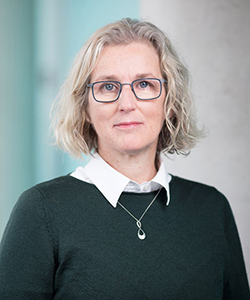Deep End Ireland GPs have had their first formal meeting with a Taoiseach, this newspaper has been told. A central issue raised by the group was the need to address the inverse care law through resource allocation based on need.
Deep End Ireland is an organisation of GPs working in socio-economically deprived communities. The meeting with Taoiseach Leo Varadkar took place earlier this month in Government buildings.
The delegation included Dr Edel McGinnity, GP in Dublin 15, Dr Niamh Irving, GP in Dublin 8, as well as Prof Susan Smith, GP and Professor of General Practice at Trinity College Dublin.
“Our main point [at the meeting] was the need to address the inverse care law through resource allocation based on need – this applies to all primary care services and not just general practice,” Prof Smith told the Medical Independent.

The inverse care law is defined as the principle that the availability of good medical or social care tends to vary inversely with the need of the population served.
“We were particularly focused on services for children as early intervention can mitigate against the well-documented lifelong physical and mental health effects of early childhood adverse experiences,” said Prof Smith.
While this was the first time Deep End Ireland had formally met a Taoiseach, it has met previous Ministers for Health and other senior health officials.
“We really welcomed the time he and his team spent with us and it demonstrated the importance of having a child poverty unit based within the Taoiseach’s office,” said Prof Smith. In late 2022, the Government announced the creation of a child poverty and wellbeing unit in the Department of the Taoiseach.
In a document presented to the Taoiseach, the Deep End GPs called for the inclusion of members in child poverty unit working groups. The GPs stated there was “an overarching need” to target resources where needs were highest. The document also called for “strong primary care infrastructure” in areas of deprivation that can act as “local hubs and facilitate linkage with community services and forums”.
The group stated the need for “GP supports including more consultation time to address complex health needs”.
“Deep End Ireland GPs have welcomed the new social deprivation practice grant, but it is very widely dispersed and provides very modest additional resource to practices (max €16,000 annually),” according to the document.
“More effective resourcing could be facilitated through deprivation weighted capitation payments for patients living in the most disadvantaged communities and other options, such as salaried GPs (working within GMS practices), and additional practice nurses, administrative staff, and other multidisciplinary primary care team members such as link workers and financial advisors.”













Leave a Reply
You must be logged in to post a comment.